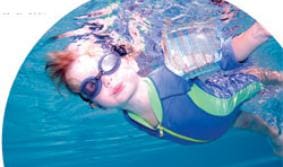Just because your child has special needs does not mean that he or she cannot benefit from the experience of summer camp. On the contrary, a summer camp designed to address your child’s specific issues can be very rewarding. There are several camps in Texas designed to accommodate everything from the mild needs of a highly functioning autistic child to the demands of a quadriplegic.
When you are searching for a camp to accommodate your special-needs child, first consider what you are hoping to achieve and what outcomes you are anticipating from the experience. You need to consider your child’s specific requirements and make sure that they will be able to be met by the facility, faculty and staff.
And although ACA accreditation is not mandatory, this is a case where it might be wise to look for that seal of approval because you will have the assurance that a minimum of nearly 300 standards, including those pertaining to health and safety, are being met. That is very comforting to a parent whose child needs more than the usual amount of supervision.
Other factors you will want to consider include the camp’s counselor-tocamper ratio. Ideally it will be 2- to-1 or in some cases even 1-to-1. Consider the ages of the staff and their training and experience in dealing with children with special needs. You will want to make sure the campground is accessible for those children with physical limitations, and if your child requires a special diet, you will want to know that the cafeteria can accommodate that need on a daily basis.
Most camps that are designed for children with special needs are aware of the situations that can arise, and some camps go the extra mile to include arrangements for caregivers and facilities for ongoing treatments.
“We try not to turn anyone away based on their level of disability,” says Janice Bobo of Camp C.A.M.P. (Children’s Association for Maximum Potential). “The only time we would ever do that is if we are unable to keep the child safe or if he is a danger to himself or others.”
Perhaps the most important thing to consider when deciding whether to send your special-needs child to camp
is whether the counselors understand that your child is special in more than just the disabled sense and will encourage him or her to explore new interests and take on new challenges.
“We try to do many of the same activities as a typical camp — we just do them a little differently and tailor them to the child’s individual needs,” explains Bobo.
The benefits of camp for special- needs children are the same as for their typically developing peers. The children gain social skills, confidence and independence. For many, camp is the first time that they are around other children with disabilities, and they realize that they are not alone. “The children begin to realize they are part of a much larger community,” Bobo adds.
Higher-functioning campers can go on to become leaders and role models within the camp community, which further bolsters the ego.
“When special-needs children are included in the traditional school environment, they often can’t do what the other children can,” explains Lisa Braziel, director of Camp Summit. “At camp, some of the higher-functioning kids become high man on the totem pole.”
The bottom line is that the right camp can make a tremendous difference in the life of a special-needs child and can open doors to new experiences that were previously unavailable.
“For many of the kids, this is the first time they have experienced swimming, horseback riding and other activities,” says Braziel. “We concentrate on their abilities, not their disabilities.”


